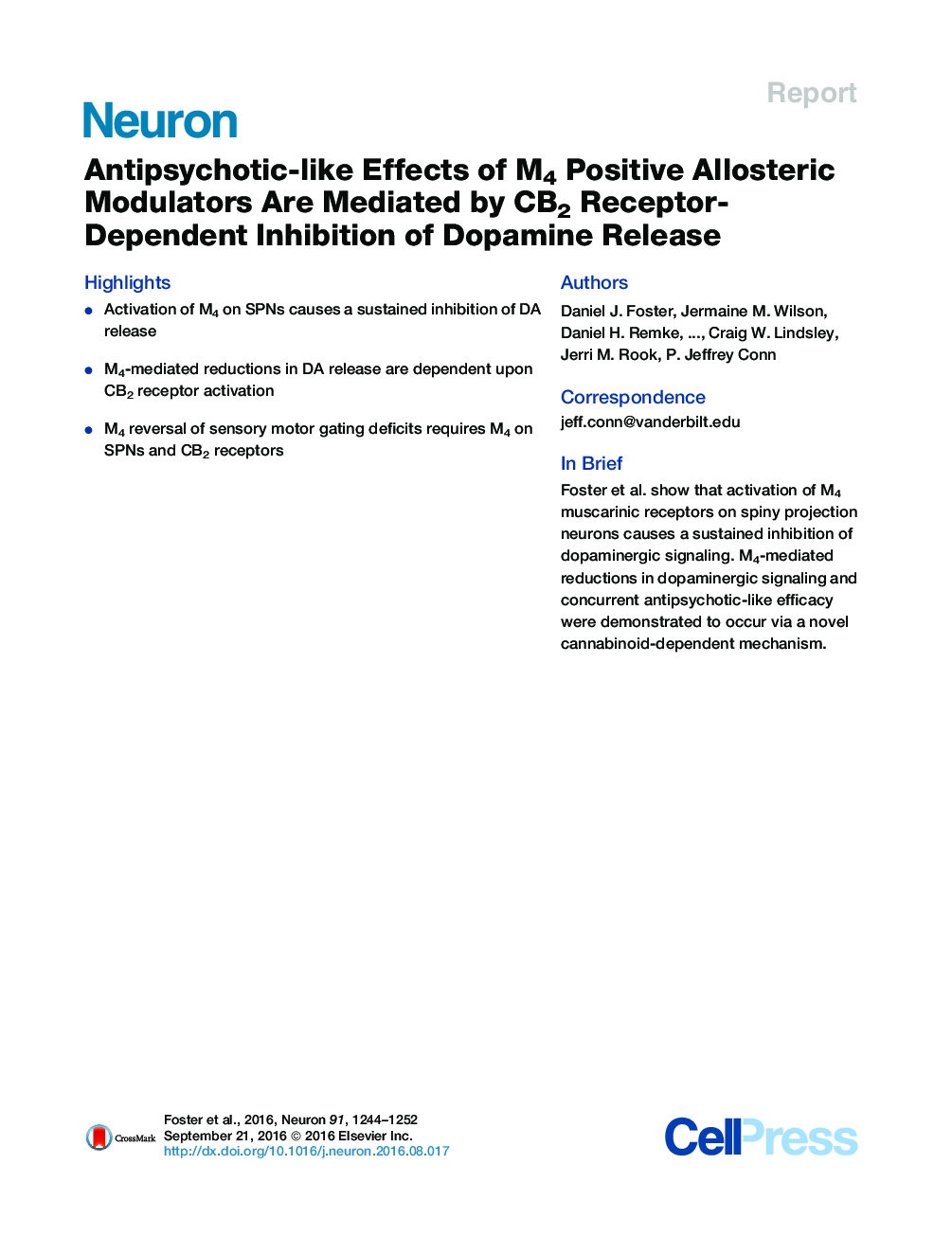| Article ID | Journal | Published Year | Pages | File Type |
|---|---|---|---|---|
| 4320632 | Neuron | 2016 | 9 Pages |
•Activation of M4 on SPNs causes a sustained inhibition of DA release•M4-mediated reductions in DA release are dependent upon CB2 receptor activation•M4 reversal of sensory motor gating deficits requires M4 on SPNs and CB2 receptors
SummaryMuscarinic receptors represent a promising therapeutic target for schizophrenia, but the mechanisms underlying the antipsychotic efficacy of muscarinic modulators are not well understood. Here, we report that activation of M4 receptors on striatal spiny projection neurons results in a novel form of dopaminergic regulation resulting in a sustained depression of striatal dopamine release that is observed more than 30 min after removal of the muscarinic receptor agonist. Furthermore, both the M4-mediated sustained inhibition of dopamine release and the antipsychotic-like efficacy of M4 activators were found to require intact signaling through CB2 cannabinoid receptors. These findings highlight a novel mechanism by which striatal cholinergic and cannabinoid signaling leads to sustained reductions in dopaminergic transmission and concurrent behavioral effects predictive of antipsychotic efficacy.
